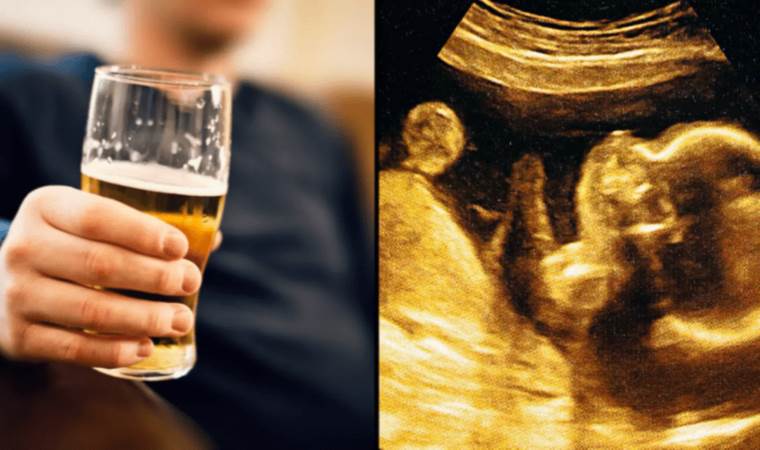Impact of fathers' drinking habits on unborn children revealed
While pregnant women are commonly advised to abstain from alcohol, a new focus emerges on fathers-to-be. Recent findings suggest that the drinking habits of men before conception can significantly impact the unborn child's development.

According to U.S. researchers, heavy alcohol consumption by men in the months leading up to conception can hinder the growth of a child's eyes, head, mouth, and jaw. This is due to the increased risk of fetal alcohol spectrum disorder (FASD), traditionally associated with maternal drinking, which affects facial development in the womb.
Further research shows that paternal alcohol use can also affect the brain growth of the fetus. Professor Michael Holding, a developmental physiologist from Texas A&M University, emphasizes the profound changes in facial organization observed in babies whose fathers engaged in heavy drinking. Defined as consuming more than five drinks in a four-hour period, this level of alcohol intake can lead to core fetal alcohol syndrome birth defects.
The study revealed that the offspring of heavy-drinking men are more likely to have smaller eyes, compressed facial features, smaller mouths, and irregular ear placement. Additionally, these children face a higher risk of developing microcephaly, characterized by underdeveloped heads and brains. This condition often correlates with lower birth weight, worsening with increased paternal alcohol consumption.
Another study from the United States suggests a higher likelihood of drug-seeking behaviors in children of heavy-drinking fathers. There's also an increased risk of life-threatening heart defects in these offspring.
These findings underscore the importance of both parents' lifestyle choices on the health and development of their unborn child. As the evidence mounts, it calls for a reevaluation of pre-pregnancy advice and a greater emphasis on paternal responsibilities during this critical period.
Most Read News
-
 US deploys NMESIS missile systems to Philippines for mil
US deploys NMESIS missile systems to Philippines for mil
-
 Spain, Portugal suffer massive ongoing blackout
Spain, Portugal suffer massive ongoing blackout
-
 6 injured in stabbing attack at high school in South Kor
6 injured in stabbing attack at high school in South Kor
-
 Taiwan says it tracked 29 Chinese military aircraft, 10
Taiwan says it tracked 29 Chinese military aircraft, 10
-
 WHO sends emergency medical supplies to Iran after deadl
WHO sends emergency medical supplies to Iran after deadl
-
 1 dead, 6 Injured in shooting on university campus in US
1 dead, 6 Injured in shooting on university campus in US
-
 Kremlin says Russia can provide military support to Nort
Kremlin says Russia can provide military support to Nort
-
 At least 68 killed in US strikes on African migrant shel
At least 68 killed in US strikes on African migrant shel
-
 Suspect charged with murder in car ramming at Vancouver
Suspect charged with murder in car ramming at Vancouver
-
 Putin declares unilateral ceasefire in Ukraine between M
Putin declares unilateral ceasefire in Ukraine between M










